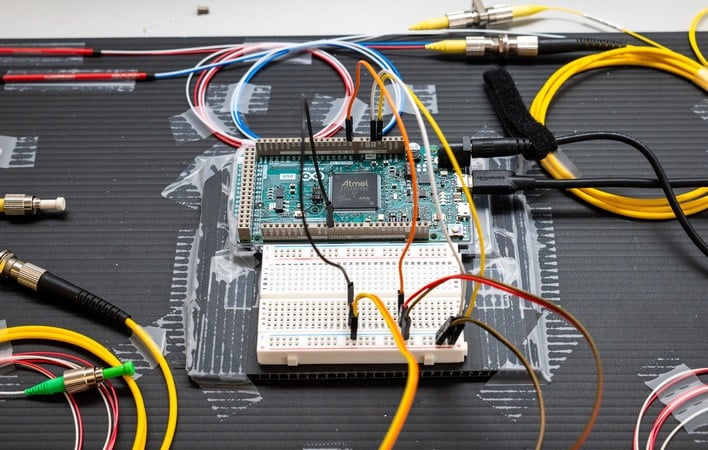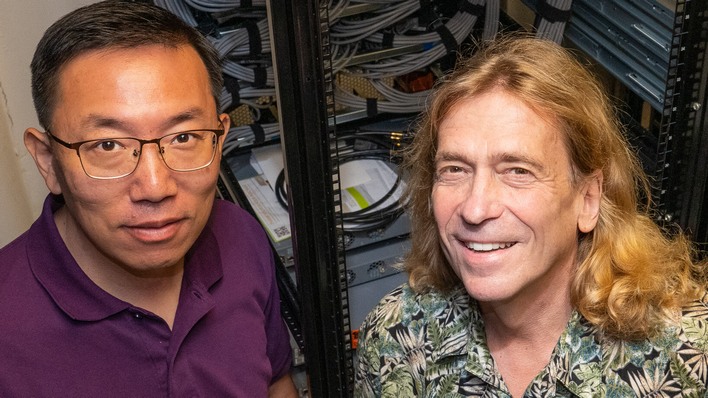Engineers Make Historic Breakthrough Sending Quantum Internet Transmissions Over Standard IP
The key to this success is a tiny chip, dubbed the "Q-chip," that the team developed to coordinate both quantum and classical data streams. By pairing classical fiber-optic light signals with quantum particles, the Q-chip allows for seamless integration of quantum data without destroying the delicate quantum state. This is important because in traditional quantum communication systems, measuring or interacting with quantum signals often causes them to lose their entangled properties—something that the Q-chip addresses by using a clever combination of classical data for routing and error correction.
One of the most impressive aspects of this experiment is that it didn't rely on specialized laboratory-grade equipment, but instead utilized the commercial fiber-optic infrastructure of an established telecom company. This marks a major step in making quantum technology more practical and scalable. The fact that quantum signals can travel on existing fiber-optic lines, without requiring entirely new networks or protocols, is a breakthrough that could fast-track the development of quantum communication systems.
But why is that so exciting? Well, for starters, the potential applications of a quantum internet are huge. Quantum networks are expected to bring advances in areas like ultra-secure communication and high-speed computing. Since quantum entanglement allows particles to be connected over long distances in ways classical data can't, it could pave the way for unhackable communications, where security is virtually unbreachable. That's a massive leap forward in privacy and cybersecurity for everything from financial transactions to personal data.
Additionally, quantum networking could eventually bolster the power of quantum computers, enabling them to work together and share processing power in ways that traditional computers can't. The promise of supercharged AI, faster scientific simulations, and the discovery of new drugs and materials are just some of the big-picture possibilities. While we're still a long way from these technologies being fully realized, the fact that researchers have now demonstrated quantum data transmission on a real-world commercial network takes us one step closer.
This achievement isn't just about a single experiment—it's a proof of concept for the future. It shows that quantum data can be successfully integrated into current internet systems and could eventually work alongside the internet protocols that already connect billions of devices around the globe. Though we're still in the very early stages, the future of a quantum internet looks more tangible than ever before.
Images in this post: Sylvia Zhang for University of Pennsylvania, via Phys.org




